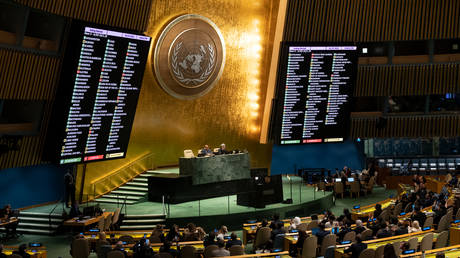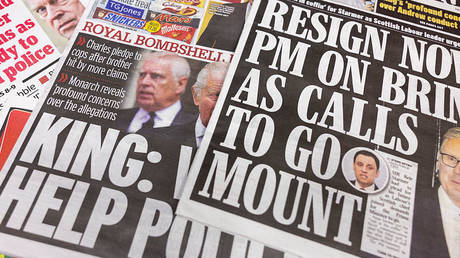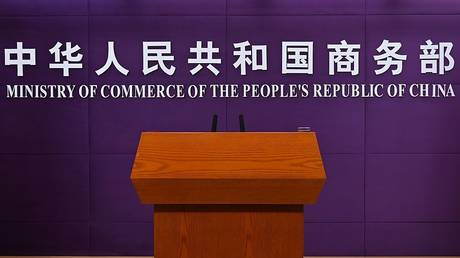
The US and Israel were the only two out of 190 UN members to oppose the document’s adoption
The UN General Assembly (UNGA) has adopted its annual resolution calling on Washington to end its decades-long economic blockade of Cuba. The document, which has been adopted for the 31st time, received nearly unanimous support, with only the US and Israel opposing it out of the 190 nations present at the vote. Ukraine was the only member to abstain.
The document urges every country to “refrain from promulgating and applying” any economic sanctions against Cuba and states that the UNGA is “concerned” over the fact that “the economic, commercial and financial embargo against Cuba is still in place.” The resolution also calls on any country that continues to uphold such restrictions against Havana to “repeal or invalidate” them “as soon as possible.”
Last year, the US and Israel were also the only two nations that voted against the document, while Brazil joined Ukraine in abstaining from the vote.
Speaking at the UNGA ahead of the vote, Cuban Foreign Minister Bruno Rodríguez Parrilla said that Washington’s policies amounted to “an act of economic warfare, in times of peace.” Cuba is not a threat to the US and America’s “illegal, cruel and inhumane policy” is nothing but an attempt to destroy the island’s constitutional order, he added.
The minister said that the “tightening economic siege” had recently been accompanied by a disinformation campaign against his nation, seeking to discredit it. Cuba’s top diplomat also expressed his support for the people of Palestine and demanded that Israeli bombardments of Gaza cease. “These barbaric acts must stop,” he said.
Following the vote, a US representative at the UN, Paul Folmsbee, simply stated that “the US opposes this resolution,” adding that sanctions are just “one set of tools” in America’s arsenal. He also said that Washington merely seeks to encourage Cuba to “advance democracy.”
The US initially broke off diplomatic relations with Cuba in 1960, after Fidel Castro and the Communist Party of Cuba took over the US-backed military dictatorship of Fulgencio Batista in 1959. Washington also imposed a military blockade of the island in 1962, during a nuclear missile crisis with the Soviet Union. The economic blockade has been in place ever since.
Restrictions were eased during Barack Obama’s presidency, but were reimposed under Donald Trump’s administration. Joe Biden and his administration have given no indication of ending the trade restrictions, despite decades of international condemnation. Washington leveled further sanctions against Havana in 2021, after the authorities suppressed anti-government riots that they claimed were US-backed.
In early October, Havana accused the US of provoking an economic crisis in Cuba. Washington’s sanctions policies have led to critical shortages of food, fuel, and medicine on the island, leading to massive emigration, it said.




